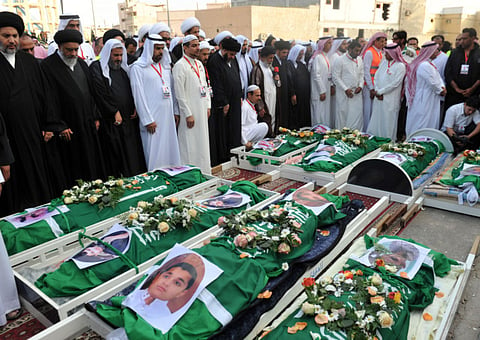Extremism is a sullied philosophy
The Saudi government and people of the country are partners in their determination to stamp out the evil of extremism from their midst

The past week saw Saudi Arabia jolted by the reality of sectarian conflict when Shiite worshippers were attacked at a mosque. The attack took place in the village of Dalwah in the eastern province of the country and a bastion of a large Shiite population. According to the official Saudi press agency, assailants toting machine guns and pistols, suspected of being Sunni militants, shot at worshippers undergoing rituals for Ashura, a revered day in the month of Muharram. Seven people including two children were killed in the ensuing gunfire. In a shootout with the suspected perpetrators of the crime, two security officers were also gunned down. Some 15 individuals with suspected links to the shootings are presently in custody. This also marked the first time that such a major militant attack against Shiites has taken place on Saudi soil.
The country’s leading religious figure went public with his condemnation of the incident, terming it one against the teachings of Islam. There were also similar calls from government figures as well as leading media personalities, one of whom described the attack as “the act of very evil people”. It also made many Saudis realise the harsh reality of a growing brand of extremism fostered on their shores by some people with hardline views of who and what constitutes a Muslim.
For many, sectarian conflict is a recent phenomenon that has gained impetus from the war on Iraq in the last decade. Many will claim that prior to 2003, when the US invaded Iraq, they had heard or known about no such conflict that left so many innocent people dead. Sure, there was the Iran-Iraq war of the 1980s, but that could be dismissed more as a fallout of political hegemony than a sectarian victory. On a personal level, many Saudis will admit that they have nothing against their Shiite counterparts. But the fanning of sectarianism, usually backed by violence, may have allowed some doubt to creep into the senses of the less informed. Such divisions were also deepened by the vitriolic rhetoric of a few hardline preachers who spread suspicion and hatred in their sermons against Shiites.
In their narrow perspective, these religious extremists hardened their views against anyone or anything not falling within their scheme of things. Such a stance, unfortunately, is also being adopted by Daesh (Islamic State of Iraq and the Levant) in their bloody and relentless quest for power. However, in the aftermath of this recent attack in Saudi Arabia, a refreshing yet surprising reaction has emerged as people banded together — Sunnis and Shiites, hand in hand, condemning the cowardly attack. Saudis today are better informed on what direction the real threat is coming from and it certainly is not from the folks in Dalwah village.
The government has also sent out a message to those who adopt such extremist measures that it will relentlessly pursue the criminals involved in any further acts of this nature. Such public announcements have allayed the fears of the Saudi Shiite community that they would be marginalised and remain a targeted minority. The message has gone out: Sunni and Shiite Saudis are all one and together they will help stamp out such brand of extremism from their midst.
Speedy response
Most Saudis are not so naive as to believe that the fanning of sectarian conflicts within their borders occurs without some form of external assistance. Who would be the region’s primary beneficiaries if such conflicts lead the country into chaos and disorder? As one diplomat put it: “The objective of the terrorists was to divide and trigger a kind of sectarian strife and conflict between Sunnis and Shiites,” but the government’s speedy response had sent an important message to the people of the affected region — that Shiites “are a part of the nation and we are with you against terrorism”. Coupled with public expressions of solidarity by the country’s leaders towards Shiites, the perpetrators have failed in their objective to polarise the population.
Frederic Wehrey, an analyst at the US-based Carnegie Endowment for International Peace said that the attack “shows that Sunni extremists have shifted their target beyond the regime and towards Shiites, perhaps in a bid to provoke civil strife.” That is unlikely to happen as the government and people of the country are partners in their determination to stamp out the evil of extremism from within their midst and to foil future such attacks on the country’s minority.
Tariq A. Al Maeena is a Saudi socio-political commentator. He lives in Jeddah, Saudi Arabia.


